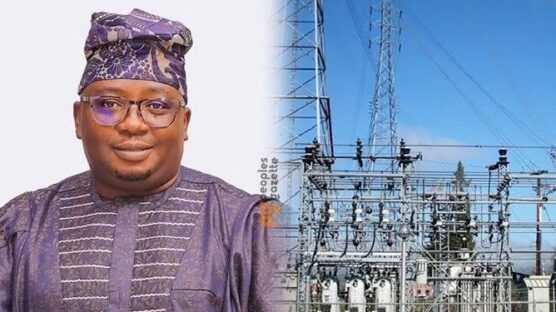
FG stabilises grid with additional 700MW
The Federal Government, through the Minister of Power, Adebayo Adelabu, has confirmed that the national grid has been stabilised with an additional 700MW transmission capacity.
Adelabu made this announcement over the weekend when he welcomed the European Union Ambassador to Nigeria, Gautier Mignot, to his office in Abuja.
According to a statement from the Minister’s media aide, Adelabu said, “We have successfully installed almost 90 per cent of the required infrastructure, and it is already operational. This upgrade has enhanced the transmission capacity by more than 700 megawatts, which is evident in the relative stability we are now experiencing in the transmission grid.”
He continued, “Previously, when the supply to the grid reached 5,000 MW, the grid would become unstable, leading to frequent disruptions. Now, we are consistently reaching 5,000, 7,000, and even 8,000 MW. This is not by chance, but the direct result of government action.”
The Minister also referred to two significant milestones recently achieved in the country’s power sector.
“The first is the highest-ever average daily power consumption, which has surpassed 20,000 kilowatt hours—an unprecedented achievement,” he explained.
Adelabu added, “The Nigerian Electricity Supply Industry (NESI) has also successfully transmitted and distributed its highest-ever energy volume of 5,801.63MW, surpassing the previous record set in 2021.”
“Additionally, we have reached a record-breaking generation capacity of 6,003 megawatts, a significant milestone for Nigeria’s power sector. These achievements prove that when the government takes decisive action, tangible results follow.”
The Minister also called on the member states of the European Union (EU) to continue providing technical, financial, and other forms of assistance to Nigeria, particularly in the power sector, which is fundamental to the country’s economic growth.
He emphasised that the power sector is crucial for optimising the overall performance of the economy.
Adelabu assured that Nigeria is fully committed to continued collaboration with the EU and its development partners to fulfil both bilateral and multilateral agreements.
He further conveyed President Bola Ahmed Tinubu’s strong commitment to the power sector, stating that the President has provided significant support to ensure substantial progress.
“The power sector has benefited immensely from the financial support of European nations, including Germany and France, as well as from their development partners,” he added, expressing his satisfaction with the cooperation.
He welcomed the EU Ambassador, noting that the meeting would ensure that both parties benefit from their bilateral and multilateral relationships.
“First, let me thank you and welcome you. When I was informed of your desire to meet with me, I wasn’t surprised, but I was thrilled to receive you. We are striving to ensure that we gain from the experiences of Western nations, particularly on the matter of power. As you rightly stated, the power sector is vital for the efficient functioning of every other sector. Without a reliable power supply, it is extremely difficult for other sectors to perform optimally. This is why Mr. President has placed such a high priority on transforming Nigeria’s power sector,” the Minister said.
He went on to express Nigeria’s disappointment in its historical struggle with unreliable power supply, despite having had access to electricity long before many European countries.
“After over 60 years of electricity in Nigeria, we are still grappling with erratic supply to homes, businesses, and industries. Even though we had electricity before some European nations, those countries have managed to stabilise their supply and have benefitted from it through visible economic growth and industrial development. Today, Nigeria remains heavily reliant on imports—not because we lack the raw materials to produce what we need, but because of the unreliability and inefficiency of our power sector,” Adelabu noted.
The Minister highlighted that the administration under President Tinubu has been making considerable strides to reform the power sector, with positive results already evident. He particularly mentioned the efforts to extend non-grid power supply to rural and semi-urban areas.
“We have made notable progress since this administration took office, especially in three areas. First, in expanding energy access, we have extended the grid to many previously unconnected areas. We have also tapped into renewable energy sources, particularly solar power, to supply energy to underserved and unserved regions. Additionally, we have utilised small hydropower plants to provide electricity to these areas. This expansion in energy access has significantly contributed to new generation capacity,” the Minister explained.
He further disclosed that the ongoing transformation of the sector is the result of President Tinubu’s bold decision to sign the Electricity Act of 2023.
“Another critical intervention is the Presidential Power Initiative (PPI), more commonly known as the Siemens Project. This project is securing nearly 2.3 billion dollars in financing to overhaul our transmission infrastructure,” Adelabu stated.
“The German government has played a pivotal role in ensuring the success of this initiative. Siemens is handling several key transmission projects, and we also have reputable Chinese firms involved in distribution projects, based on their respective expertise and proven track records.”
“We are nearing the completion of the pilot phase of this project, which has involved the importation, installation, commissioning, and energisation of 10 power transformers across the country, along with another 10 mobile substations,” he concluded.




